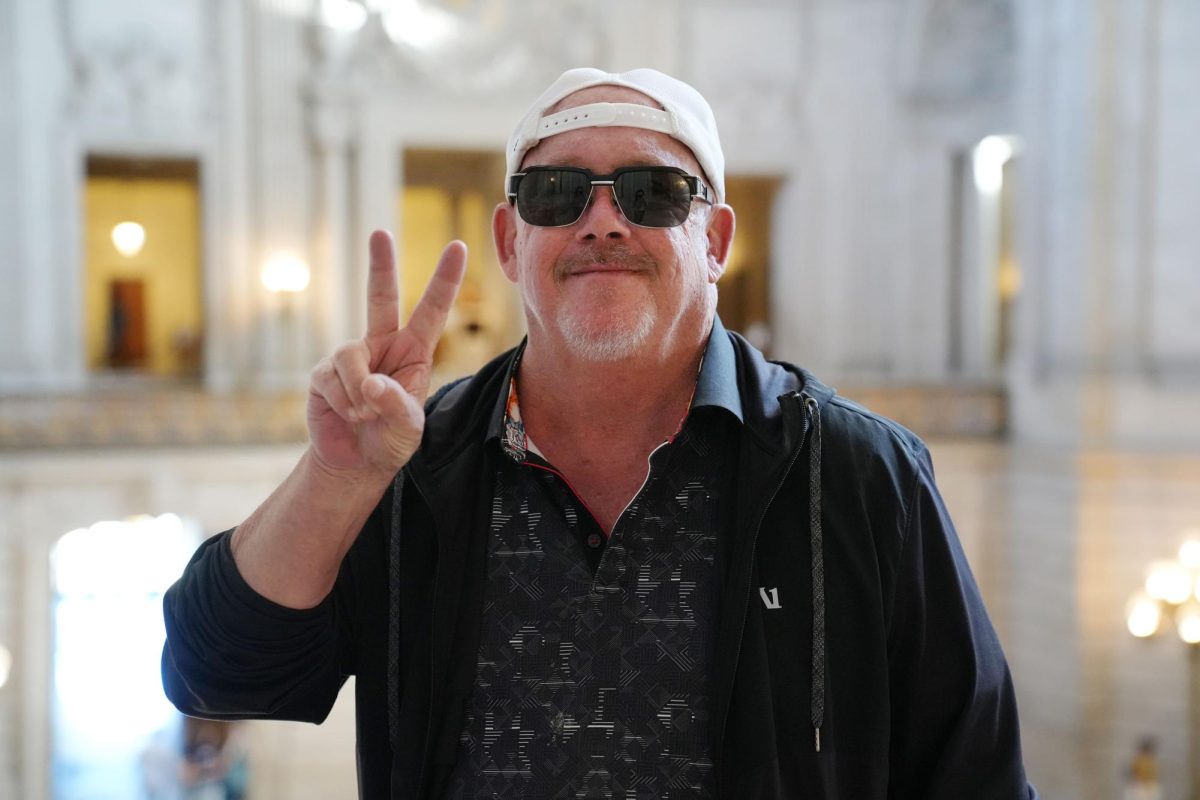A look at the nonpartisan movement to update voting technology in the U.S.
Brent Turner, a business owner, civil rights activist and proponent for open-source election software, poses for a picture in San Francisco City Hall on Sept. 30, 2024. (Andrew Fogel / Golden Gate Xpress)
Between Russian hackers targeting critical voting infrastructure and the rise of election deniers questioning the legitimacy of the voting process, concerns have grown among officials about the vulnerability of America’s voting machines to potential attacks since the 2016 election.
As the 2024 election creeps closer, individuals across the United States believe that they have found the answer to improving the way that Americans vote by using open-source software.
According to Arno Puder, chair of the San Francisco State University computer science department, open-source software allows anyone on the internet to view, modify and distribute its source code.
Supporters believe that the accessibility of open-source software is the perfect forum for elections.
“In a time where our country is particularly polarized, I think that open-source transparency provides a common ground of facts that everybody can trust, because everybody can perform their own verification,” said Matt Roe, the head of product for VotingWorks, a nonprofit organization focused on developing secure voting systems.
Roe noted that allegations of malicious code that changes votes can be dispelled by a technical analysis of the source code can be conducted by any independent expert that someone chooses and trusts.
Brent Turner, a real estate business owner and civil rights activist, became interested in the open-source election movement after meeting with a group of “pioneers” in the early 2000s. The group wanted to challenge the use of proprietary software in America’s election systems from companies such as Dominion Voting Systems, Election Systems & Software (ES&S) and Hart InterCivic.
After Turner noticed a lack of effective communication from the group on advocating for open-source solutions, he decided to become a voice for the movement.
“You could stick your head in the sand and not acknowledge the issue or you can do exactly what these open-source system folks say and go to a better, more secure, less expensive system,” Turner said.
Puder acknowledged that while open-source software has benefits with a community dedicated to security, transparency and collaboration, there are also significant challenges.
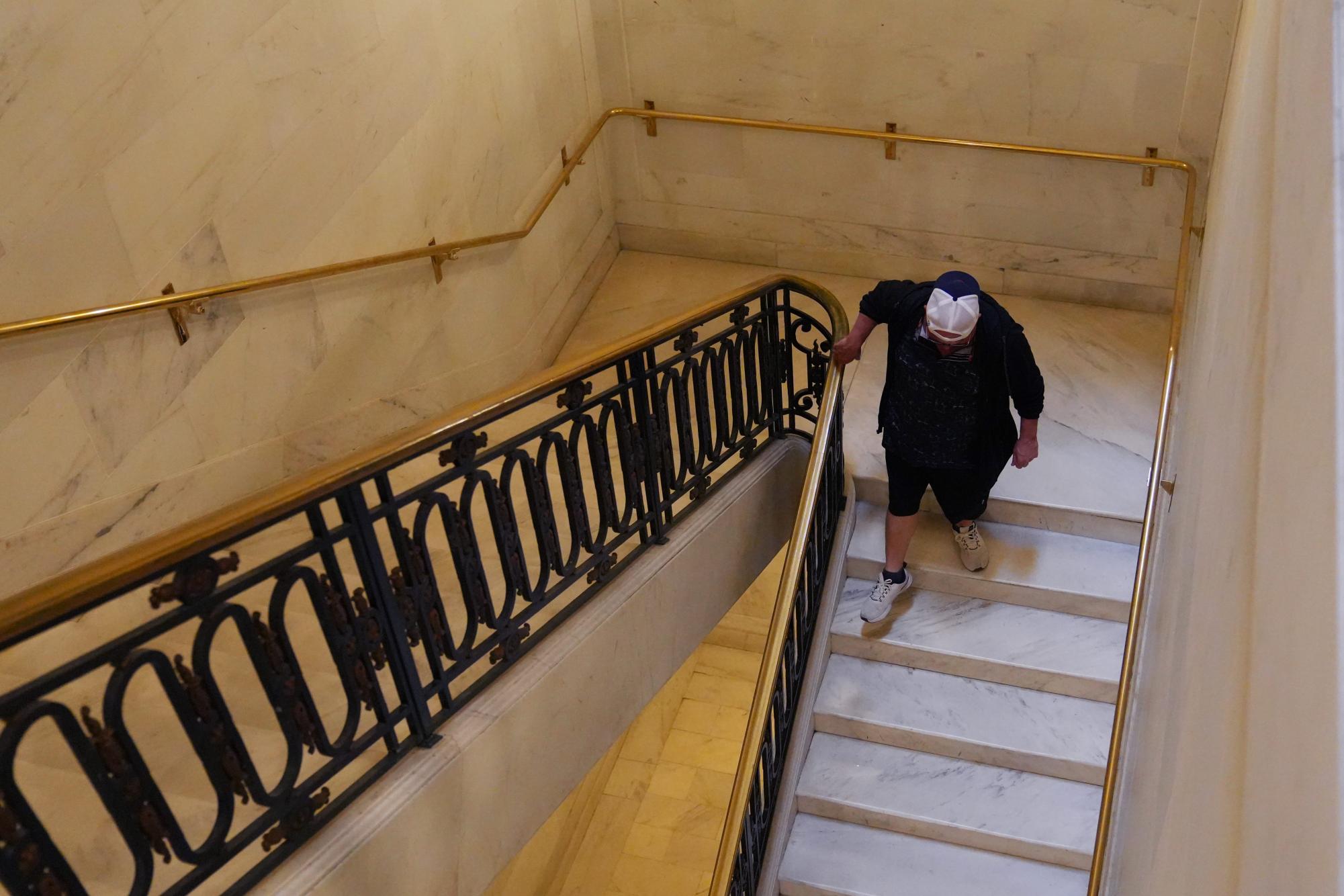
“You can look at it but if you don’t inspect the source code — if you don’t compile the source code yourself, you might still get yourself some vulnerabilities,” he said. “Linux, I think, has some 30 million lines of code. You can download this whole thing for free, but you cannot look at 30 million lines of code and see if something is wrong.”
Turner admitted that those concerns were valid but noted that the alternative is letting giant companies with murky motivations preside over elections.
“So that’s a continual effort to tighten the systems, but foundationally, we do want to have open-source as the software so that we can eliminate a lot of the vulnerabilities that currently exist regarding software,” he said. “We don’t want corporations controlling any aspects of the United States election systems.”
At the same time that Turner was engaging in his advocacy work, VotingWorks was making significant strides in the field of open-source election systems.
VotingWorks, with a hardware factory in San Francisco, was able to break into the market with the only open-source voting machines used in the United States.
In 2019, Choctaw County, Mississippi, became the first county in the United States to use open-source machines.
“Mississippi was a shock to my system, because VotingWorks went there and we didn’t have any conversation with Mississippi as an advocate for Open Voting Consortium, which is Alan Dechert and myself,” Turner said. “We weren’t focused on Mississippi at all for this work, but lo and behold, VotingWorks went in and spoke with the registrar for Choctaw County and she was the first in the country to adopt and deploy a system utilizing open-source software.”
Since then, several counties in Mississippi have adopted VotingWorks machines, along with New Hampshire launching a state pilot program in 2022 to test out the new technology.
Roe noted that election officials have expressed gratitude for the opportunity to upgrade their equipment. He emphasized that many officials value the enhanced efficiency of the machines and the increased speed of their workflows.
“We’ve gotten lots of positive feedback on the user experience in many of these cases, in Mississippi and New Hampshire, where we’re replacing equipment that’s been in the field for decades. And we’ve approached this from sort of a nonprofit basis, providing an affordable opportunity, in some cases, for these jurisdictions to easily upgrade their equipment,” Roe said. “And voters have benefited from that purely from the experience of the act of voting.”
Roe said that the next step for VotingWorks is to submit their voting system for testing and approval under the latest Voluntary Voting System Guidelines (VVSG), a set of requirements for voting systems in the United States focused on functionality, accessibility and security capabilities, in order to expand to more states.
Currently, most voting systems in the United States are certified to the previous VVSG standards, which were established in 2005.
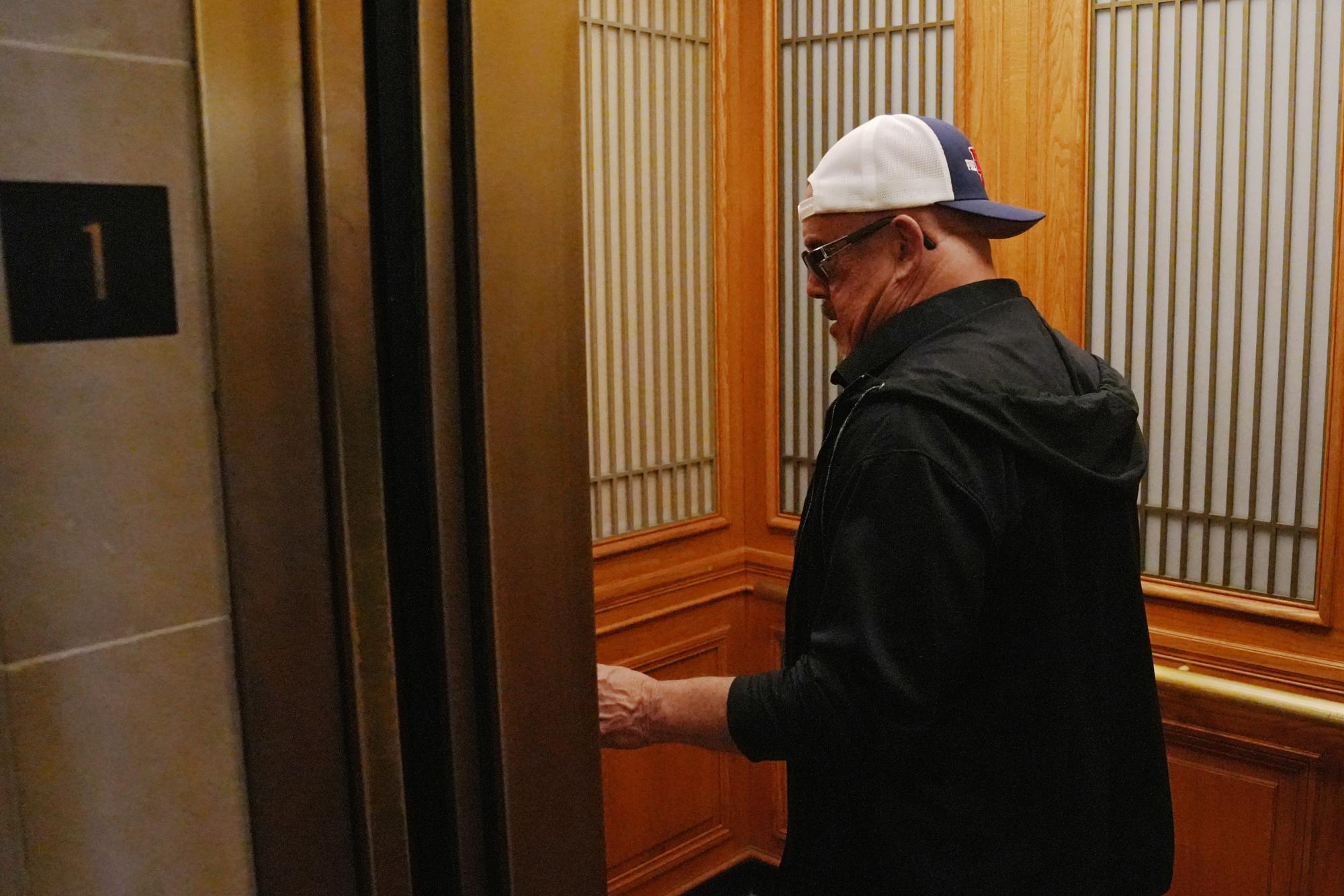
“We’ve used the opportunities in Mississippi and New Hampshire with their custom certification processes to enable us to put systems into the field, test them and receive feedback from election officials and voters before submitting that for federal certification,” Roe said. “So the process, although has been a long one, has been one in which [there has] been sort of continuous iteration and learning in those markets.”
Both Roe and Turner are optimistic about getting open-source election technology in California as they noted several key developments.
In April 2021, California’s Little Hoover Commission, an independent state oversight agency, released a report highlighting the need for significant reforms in the state’s election systems and recommended the creation of an open-source voting system.
“The 2020 election was the most secure election in history,” said Chair Pedro Nava in the report. “But California cannot be complacent and should take steps to improve its election infrastructure in order to keep up with evolving technology and knowledge.”
Additionally, in January 2022, the San Francisco Board of Supervisors unanimously approved then-Board President Shamann Walton’s ordinance to launch an open-source voting pilot program in San Francisco. Due to some delays and logistical challenges, California Secretary of State Shirley Weber denied the implementation of the pilot program in May but encouraged the city and VotingWorks to reapply.
“While our office is open to pilots involving voting systems using open-source platforms, it is just as important that these systems, like every other current voting system in use in California, comply with all state and federal election laws and function as designed and as required by law to ensure the integrity and security of the votes being cast is protected,” said Weber, in a letter to the San Francisco Department of Elections.
While the implementation of open-source platforms across the United States faces numerous challenges, Turner believes there is enough incentive for municipalities to take action.
“I think because it’s one of the very few issues that unites both sides of the aisle that there is reason for good optimism in regarding this effort,” Turner said. “So I’m looking forward to more counties, jurisdictions and states adopting open-source election systems.”
About the Contributors
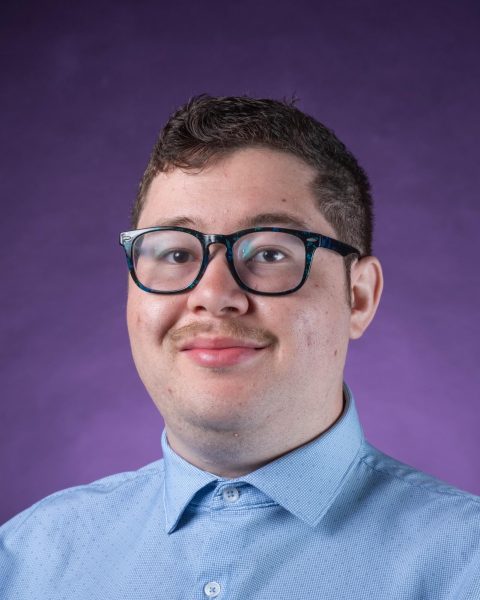
Sean Young (he/him) is the copy and opinions editor for Golden Gate Xpress. He is a journalism major with a minor in California Studies. Originally from the small town of Sebastopol, Sean now lives in San Francisco. Before transferring to San Francisco State University , Sean studied journalism at Santa Rosa Junior College, where he was editor-in-chief of the college’s student publication The Oak Leaf News. In his spare time, Sean can be found watching sports, listening to music and podcasts on Spotify and reading the latest news from The New York Times. Sean Young (él) es el redactor de textos y opiniones para Golden Gate Xpress. Estudia Periodismo con una Especialización en Estudios Californianos. Originalmente del pequeño pueblo de Sebastopol, Sean actualmente vive en San Francisco. Antes de transferirse a la Universidad Estatal de San Francisco, Sean estudió periodismo en Santa Rosa Junior College, donde fue director de la publicación estudiantil del colegio, The Oak Leaf News. En su tiempo libre, Sean se puede encontrar viendo deportes, escuchando música y podcasts en Spotify, y leyendo las últimas noticias del The New York Times.
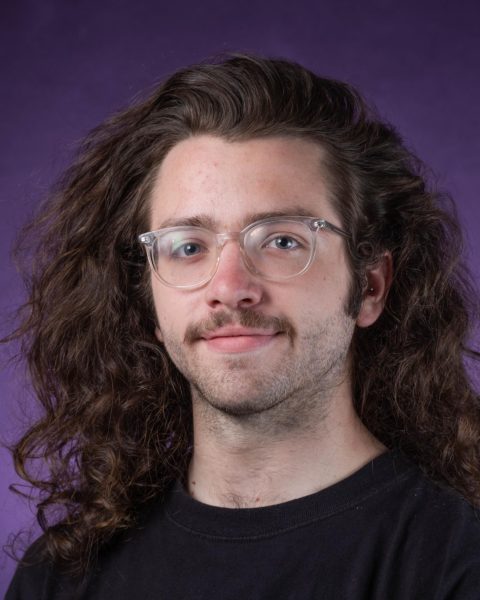
Andrew Fogel is visuals editor for Golden Gate Xpress and former managing editor for Xpress Magazine who’s majoring in photojournalism and minoring in labor and employment studies. If he’s not taking photos, Andrew can be found rooting for the various Philadelphia sports teams. Andrew Fogel es fotógrafo y estudia Fotoperiodismo con una Especialización en Estudios de Trabajo y Empleo. Si no está tomando fotos, Andrew se le puede encontrar animando a los diversos equipos deportivos de Filadelfia.

